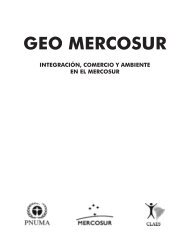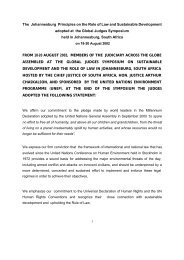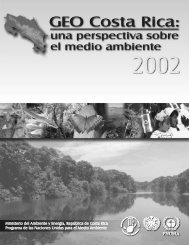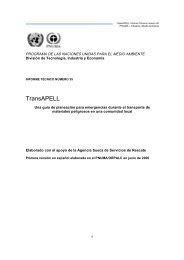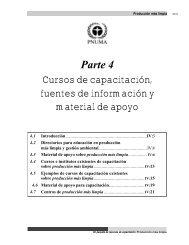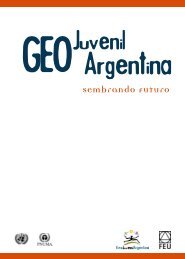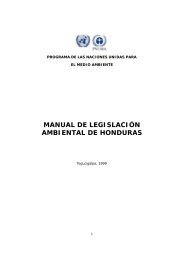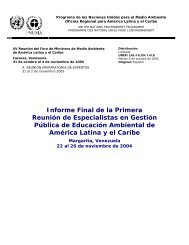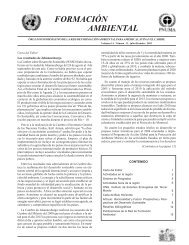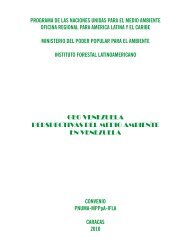English
English
English
Create successful ePaper yourself
Turn your PDF publications into a flip-book with our unique Google optimized e-Paper software.
MULTILATERAL ENVIRONMENTAL AGREEMENTS TRIO: BASEL, ROTTERDAM AND<br />
STOCKHOLM CONVENTIONS<br />
Multilateral Environmental Agreements (MEAs) 35 are a subset of the universe of<br />
international agreements. What distinguishes them from other agreements is that<br />
they focus on environmental issues, create binding international law, and include<br />
multiple countries. Over the years, many MEAs have been negotiated and agreed at<br />
the international and regional levels. Some have only a limited number of<br />
“Parties”, 36 while others involve almost all the countries around the world.<br />
MEAs differ in scope and substance. Nevertheless, they tend to be formulated<br />
through a similar process that moves through recognizable stages. These stages<br />
include pre-negotiation, negotiation, adoption and signature, ratification and<br />
accession, and entry into force.<br />
MEAs come in a variety of forms. They can be:<br />
• Global: for example, the Basel Convention on the Control of Transboundary<br />
Movements of Hazardous Wastes and their Disposal applies throughout the<br />
world; or<br />
• Regional: for example, the Bamako Convention on the Ban of the Import<br />
into Africa and the Control of Transboundary Movement and Management of<br />
Hazardous Waste within Africa, which applies only within the African Region.<br />
Civil society participation is allowed in many MEAs, though, for some of them, not<br />
at the scope and degree that civil society might want. Nonetheless, civil society<br />
should use any available means and forum to make their voices and views clear. In<br />
particular, workers and trade unions must bring to these forums their expertise, in<br />
terms of their experiences in the workplace, and knowledge of the realities of<br />
hazardous chemical contamination and impacts. MEAs and their mechanisms must<br />
be seen as genuine opportunities to push forward in the struggle to achieve labour<br />
rights, social justice, and fair and equitable development.<br />
Indeed, social dialogue has an important role to play in framing MEA regimes. For<br />
this to happen, it is important that trade unions spot where and how they can best<br />
intervene and participate. Therefore, the following section presents the three most<br />
relevant MEAs related to sound and sustainable management of chemicals.<br />
BASEL CONVENTION: ABOUT CHEMICALS INTERNATIONAL TRADE MOVEMENT 37<br />
The Basel Convention on the Control of Transboundary Movements of Hazardous<br />
Wastes and their Disposal is the most comprehensive global environmental<br />
agreement on hazardous and other wastes.<br />
It is a global treaty to protect human health and the environment from risks posed<br />
by hazardous wastes and their transboundary movement. When hazardous wastes<br />
are dumped indiscriminately, spilled accidentally or managed improperly, they can<br />
cause severe health problems, or even death, and poison water and land for<br />
decades.<br />
35 Based on UNEP. “Guide for Negotiators of Multilateral Environmental Agreements”<br />
http://www.unep.org/DEC/docs/Guide%20for%20Negotiators%20of%20MEAs.pdf (last accessed 14<br />
April 2008)<br />
36 “Party” is the name given to refer to those countries that have ratified a Convention<br />
37 Based on the Basel Convention on the Control of Transboundary Movements of Hazardous Wastes<br />
and their Disposal, http://www.basel.int/<br />
121



